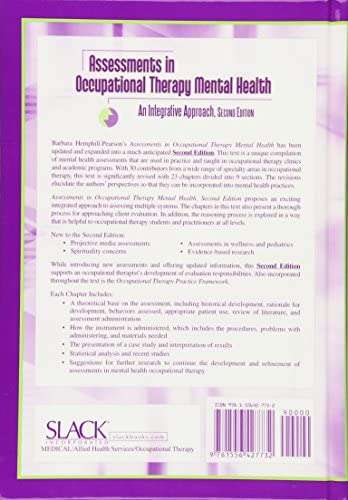![]()
What is mental health?
Mental health includes our emotional, psychological, and social well-being. It affects how we think, feel, and act. It also helps determine how we handle stress, relate to others, and make healthy choices.1 Mental health is important at every stage of life, from childhood and adolescence through adulthood.
Although the terms are often used interchangeably, poor mental health and mental illness are not the same. A person can experience poor mental health and not be diagnosed with a mental illness. Likewise, a person diagnosed with a mental illness can experience periods of physical, mental, and social well-being.
![]()
Why is mental health important for overall health?
Mental and physical health are equally important components of overall health. For example, depression increases the risk for many types of physical health problems, particularly long-lasting conditions like diabetes, heart disease, and stroke. Similarly, the presence of chronic conditions can increase the risk for mental illness.2
![]()
Can your mental health change over time?
Yes, it’s important to remember that a person’s mental health can change over time, depending on many factors. When the demands placed on a person exceed their resources and coping abilities, their mental health could be impacted. For example, if someone is working long hours, caring for a relative, or experiencing economic hardship, they may experience poor mental health.
![]()
How common are mental illnesses?
Mental illnesses are among the most common health conditions in the United States.
- More than 50% will be diagnosed with a mental illness or disorder at some point in their lifetime.3
- 1 in 5 Americans will experience a mental illness in a given year.4
- 1 in 5 children, either currently or at some point during their life, have had a seriously debilitating mental illness.5
- 1 in 25 Americans lives with a serious mental illness, such as schizophrenia, bipolar disorder, or major depression.6
![]()
What causes mental illness?
There is no single cause for mental illness. A number of factors can contribute to risk for mental illness, such as
- Early adverse life experiences, such as trauma or a history of abuse (for example, child abuse, sexual assault, witnessing violence, etc.)
- Experiences related to other ongoing (chronic) medical conditions, such as cancer or diabetes
- Biological factors or chemical imbalances in the brain
- Use of alcohol or drugs
- Having feelings of loneliness or isolation
Mental health includes our emotional, psychological, and social well-being. It affects how we think, feel, and act. It also helps determine how we handle stress, relate to others, and make choices. Mental health is important at every stage of life, from childhood and adolescence through adulthood.
Over the course of your life, if you experience mental health problems, your thinking, mood, and behavior could be affected. Many factors contribute to mental health problems, including:
- Biological factors, such as genes or brain chemistry
- Life experiences, such as trauma or abuse
- Family history of mental health problems
Mental health problems are common but help is available. People with mental health problems can get better and many recover completely.
Early Warning Signs
Not sure if you or someone you know is living with mental health problems? Experiencing one or more of the following feelings or behaviors can be an early warning sign of a problem:
- Eating or sleeping too much or too little
- Pulling away from people and usual activities
- Having low or no energy
- Feeling numb or like nothing matters
- Having unexplained aches and pains
- Feeling helpless or hopeless
- Smoking, drinking, or using drugs more than usual
- Feeling unusually confused, forgetful, on edge, angry, upset, worried, or scared
- Yelling or fighting with family and friends
- Experiencing severe mood swings that cause problems in relationships
- Having persistent thoughts and memories you can’t get out of your head
- Hearing voices or believing things that are not true
- Thinking of harming yourself or others
- Inability to perform daily tasks like taking care of your kids or getting to work or school
Learn more about specific mental health problems and where to find help.
Mental Health and Wellness
Positive mental health allows people to:
- Realize their full potential
- Cope with the stresses of life
- Work productively
- Make meaningful contributions to their communities
Ways to maintain positive mental health include:
- Getting professional help if you need it
- Connecting with others
- Staying positive
- Getting physically active
- Helping others
- Getting enough sleep
- Developing coping skills
Learn more about the importance of prevention and wellness.
Get Help
Learn how to talk about mental health or how to get help for yourself or someone you care about.
Why is Mental Health Important?
Mental health is more important now than ever before; it impacts every area of our lives. The importance of good mental health ripples into everything we do, think, or say.
Reasons to care for mental health
Maintaining a positive mental health and treating any mental health conditions is crucial to stabilizing constructive behaviors, emotions, and thoughts. Focusing on mental health care can increase productivity, enhance our self-image, and improve relationships.
Nurturing mental health doesn’t just improve our daily functioning, but it can also help us control — or at least combat — some of the physical health problems directly linked to mental health conditions. For example, heart disease and stress are related, so managing stress might have a positive outcome on heart disease.
Other benefits of taking care of our mental health can include:
- Improving our mood
- Reducing our anxiety
- Creating an enhanced sense of inner peace
- Thinking more clearly
- Improving our relationships
- Increasing our self-esteem
“Our mental health is something that impacts our eating and sleeping habits and has a lot to do with our physical health as well. It is important to address our mental health needs, or oftentimes we will feel the impact of it in other areas of our health as well.”
Talkspace therapist Bisma Anwar, LMHC
Beyond everything else we’ve already discussed, being mentally healthy can significantly impact our psychological, emotional, and social well-being. It directly affects how we feel and act on a daily basis. Mental health is a major factor when we make difficult choices, deal with stress, and relate to other people in our world.
Yet, mental health isn’t just something we can deal with once and then get over. It’s important in every stage of our life. From infancy all the way into adulthood — mental health is something we need to be cognizant of and handle with care.
Having a solid foundation when it comes to mental health means you can:
- Have productive, healthy relationships
- Cope with daily stress in life
- Establish a positive sense of self
- Stay motivated and physically active, and healthy
- Be more productive at work and school
- Make meaningful connections and contributions to the community
- Realize and work towards achieving your full potential
Why Should We Spread Mental Health Awareness?
By making a concerted effort to spread mental health awareness, we can work to de-stigmatize how we think about, approach, and identify mental health issues in our society.
Having those tough conversations and admitting there’s a problem means we can come up with a solution. We can start removing the shame and fear that’s often associated with topics surrounding mental health. Doing so can increase the likelihood of someone reaching out when they need help.
Asking for help is a sign of strength. Working together allows us to begin building a foundation that respects and honors the importance of good mental health.
Another benefit to focusing on mental health awareness is that it can make signs and symptoms of certain conditions more well-known. Early intervention is predictive of how successful mental health treatment will be for many conditions. The earlier someone is diagnosed and begins treatment, the more likely it is that they’ll be able to manage their condition and improve their mental health.
Summary
What is mental health?
Mental health includes our emotional, psychological, and social well-being. It affects how we think, feel, and act as we cope with life. It also helps determine how we handle stress, relate to others, and make choices. Mental health is important at every stage of life, from childhood and adolescence through adulthood and aging.
What are mental disorders?
Mental disorders are serious conditions which can affect your thinking, mood, and behavior. They may be occasional or long-lasting. They can affect your ability to relate to others and function each day. Mental disorders are common; more than half of all Americans will be diagnosed with one at some time in their life. But there are treatments. People with mental disorders can get better, and many of them recover completely.
Why is mental health important?
Mental health is important because it can help you to:
- Cope with the stresses of life
- Be physically healthy
- Have good relationships
- Make meaningful contributions to your community
- Work productively
- Realize your full potential
Your mental health is also important because it can affect your physical health. For example, mental disorders can raise your risk for physical health problems such as stroke, type 2 diabetes, and heart disease.
What can affect my mental health?
There are many different factors that can affect your mental health, including:
- Biological factors, such as genes or brain chemistry
- Life experiences, such as trauma or abuse
- Family history of mental health problems
- Your lifestyle, such as diet, physical activity, and substance use
You can also affect your mental health by taking steps to improve it, such as doing meditation, using relaxation techniques, and practicing gratitude.
Can my mental health change over time?
Over time, your mental health can change. For example, you may be dealing with a difficult situation, such as trying to manage a chronic illness, taking care of an ill relative, or facing money problems. The situation may wear you out and overwhelm your ability to cope with it. This can worsen your mental health. On the other hand, getting therapy may improve your mental health.
What are the signs that I might have a mental health problem?
When it comes to your emotions, it can be hard to know what is normal and what is not. There are warning signs that you may have a mental health problem, including:
- A change in your eating or sleeping habits
- Withdrawing from the people and activities you enjoy
- Having low or no energy
- Feeling numb or like nothing matters
- Having unexplained aches and pains
- Feeling helpless or hopeless
- Smoking, drinking, or using drugs more than usual
- Feeling unusually confused, forgetful, angry, upset, worried, or scared
- Having severe mood swings that cause problems in your relationships
- Having thoughts and memories that you can’t get out of your head
- Hearing voices or believing things that are not true
- Thinking of harming yourself or others
- Not being able to perform daily tasks like taking care of your kids or getting to work or school
What should I do if I think I have a mental health problem?
If you think that you may have a mental health problem, get help. Talk therapy and/or medicines can treat mental disorders. If you don’t know where to start, contact your primary care provider.




